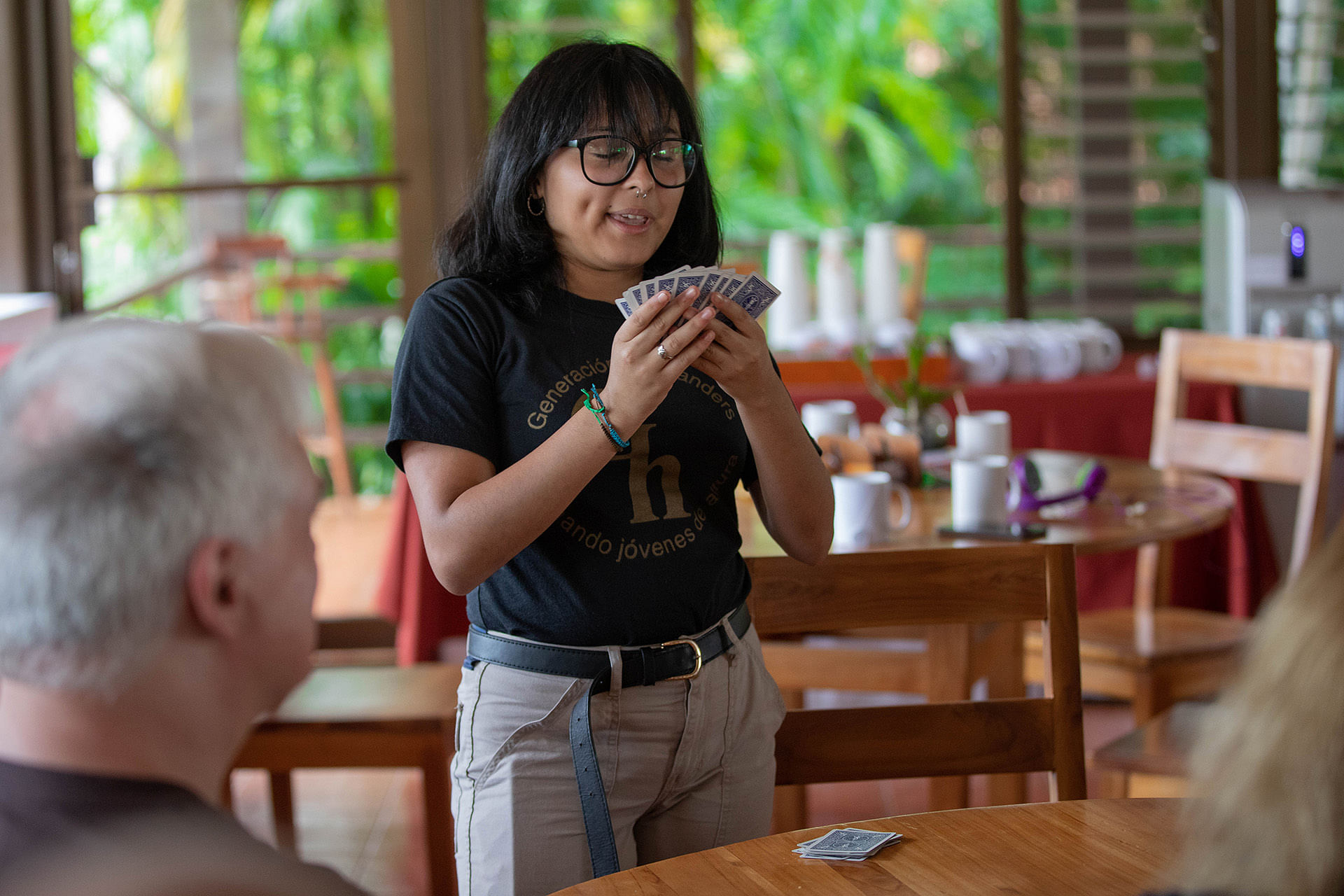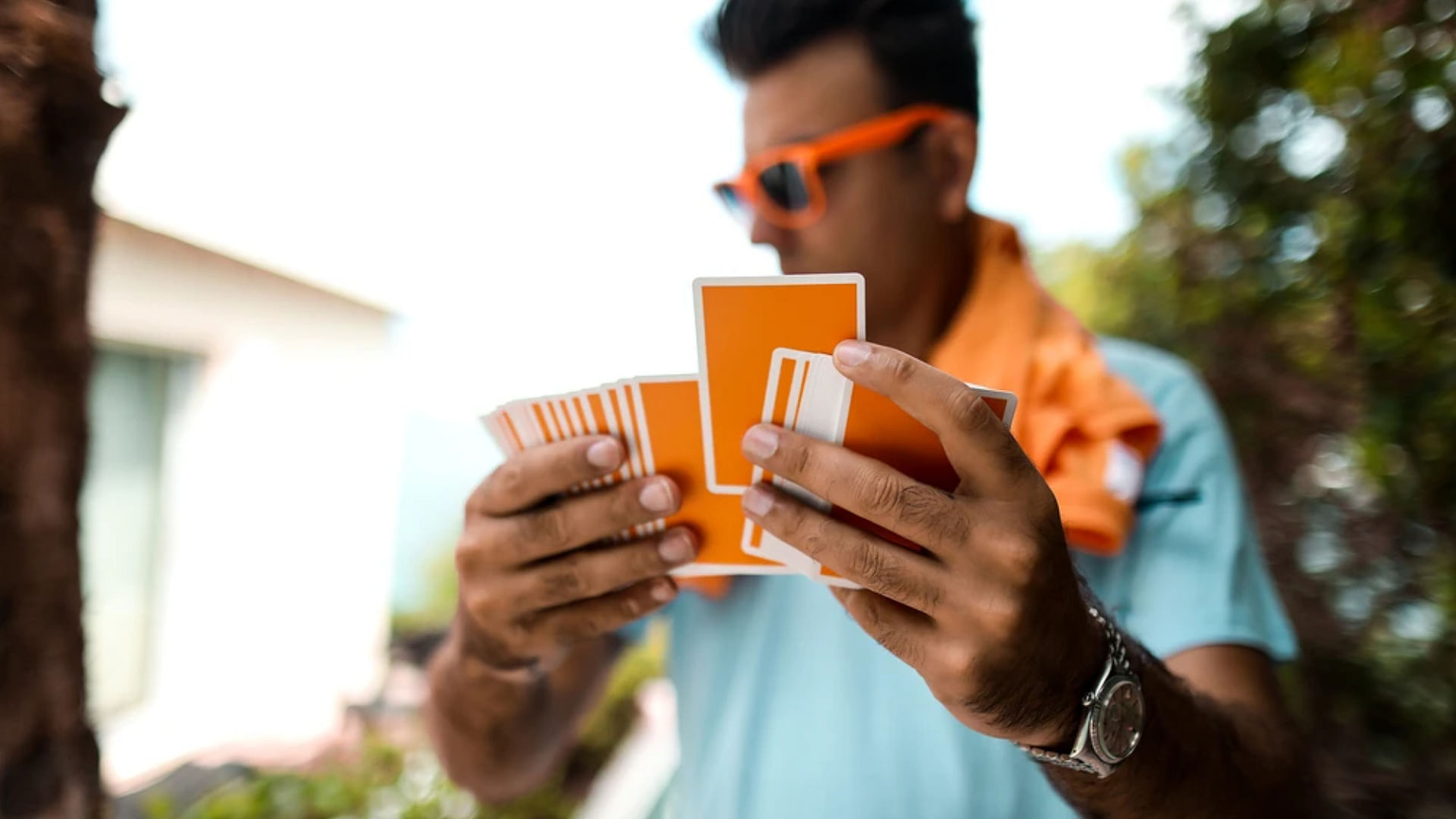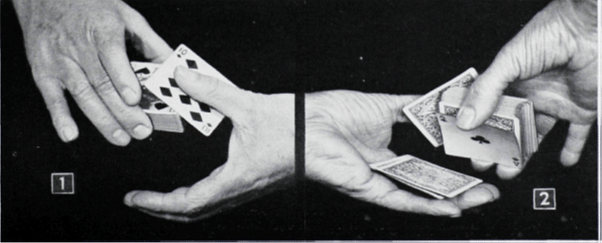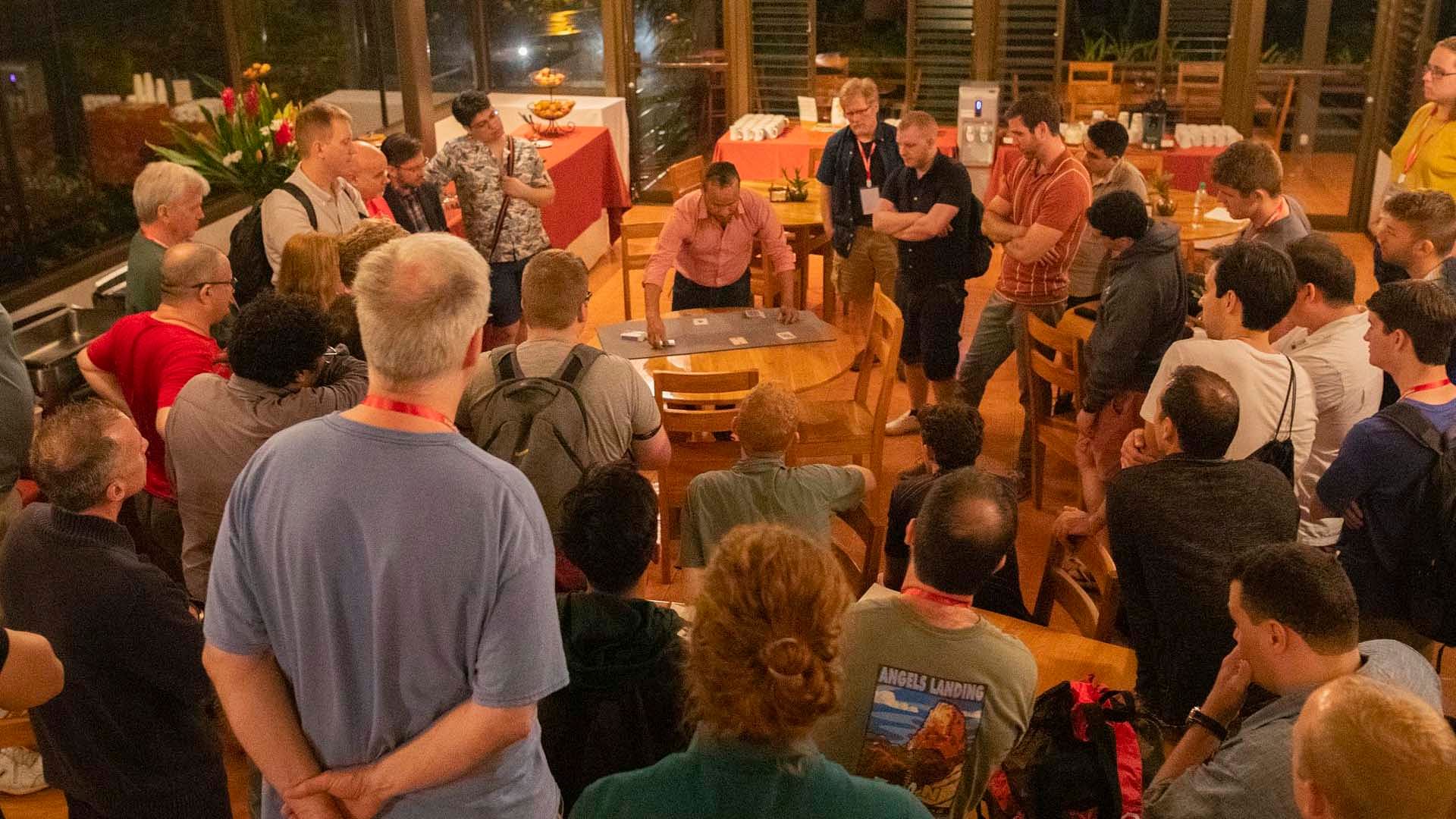How To Practice Close Up Magic
What is close up magic?
Close up magic, as the name suggests, is magic performed close to people. This could be street magic like Michael Carbonaro or Dynamo, magic at a bar, corporate function or wedding, or at a more formal performance space like The Magic Castle.
Often close up magic is magic done with playing cards (using sleight of hand or gaffed decks), but also popular are coin tricks and even in some cases mentalism.
Close up magic takes physical skill, and - even though there’s no stage - stage presence. You need to entertain your audience and keep their attention when there’s nothing else to distract them. All eyes are on you.
It’s usually performed with your audience no more than a few feet away, so there is no room for error.
This is why practise is so important. In this article, we’ll be sharing some tips on how you can practise close up magic.

Practise… A Lot
The first thing you need to get your head around is that you’re going to need to practise. A lot. Now, it’s important to realise there are different stages of practise. Initially, you want to run through the mechanics of a trick until you can do the necessary moves without really having to think about it. When you’re learning easy card tricks the “moves” are often very easy, but still, you want to be able to run through them without pausing or trying to remember which hand goes where or which packet of cards is placed on the top of the deck. So even easy tricks need to be practised.
The next stage is running through the trick in sequence. Once the moves are solidified, you then need to put them together in order.
Finally, you need to practise as if you were performing for someone. This means you have your patter or script down pat (more on that later), and you say the words you will be saying when you perform as you run through the moves. This is the most important aspect and is often overlooked by beginners. You do not want to be saying lots of umms and arrs, so run through the trick whilst saying outloud the words you plan to say.
Walk Before You Run
It’s a good idea to get the card magic basics down when you start. If you know how to properly hold a deck, spread the cards and perform some shuffles it will really help you in the long run. People don’t want to watch someone fumbling with cards. It won’t take you that long to get these basics down and will hugely improve (and speed up) your learning journey.

One thing beginners often do is have a lot of movements that are not needed. This can be something like fidgeting, or transferring your weight from one foot to another in a nervous way. It’s also giveaway movements in your hands as you perform some sleight of hand move.
In terms of the former, learn to “plant” your feet when you stand. Imagine there are roots coming from your feet, and anchor yourself in one spot. If you need to move somewhere for the trick (to get a card selected for example) confidently move to the place you need to be and once again “plant’ your feet when you stand. This will not only make you not look nervous and fidgety, but will command your audience to pay attention to what they are meant to be paying attention to.
In terms of the latter, practising in front of a mirror or camera (more on that later too) will help remove those little “tells” that you’re doing a move.

Script
Whole books have been written on scripting magic, and we do recommend you read them later in your journey. Suffice to say for now, you need to work out the words you are going to say. No one wants to see a trick with “explanatory patter”: “OK, I will put your card here, then shuffle the cards, then deal the cards one at a time”. It’s not interesting. Work out how to make what you are saying engaging and entertaining. And sure, it is a good idea to actually type up what you are going to say. When it’s written down, it makes you really think about your choice of language and you can refine it by editing it.

Postioning
Before you start, think about what you are going to need for the trick and whereabouts those things are. You may need a deck of cards, a pen, a glass, a handkerchief and so on. Know where these things are, be that on a table or in your pockets. Fumbling for items is not a good look. Also it breaks your eye contact with your audience. Establishing good eye contact from the get go will really help you later on when you are having to misdirect your audience from looking in a certain place when you’re doing something sneaky. A magician you won’t have heard of called Fred Robinson always had a deck of cards in the same pocket, with the box the same orientation and the cards within the box always the same way. This means when he went to start a trick, he could reach in, remove the deck, unbox it and be ready to go without having to look away from his audience. This is probably the best tip in this article, and one you may not truly appreciate for a few years.
Mirror or Video
This is essential. You’ve got a camera, right, on your phone. Use it. Prop it up on a book if you don;t have a stand or tripod and film yourself. Initially film yourself doing the moves you’re learning. A camera, as the saying goes, doesn’t lie. You will be able to see if what you’re doing is convincing or fooling. You’ll see the bad angles for certain moves and you can learn to adjust them accordingly.
After you’ve done that, film yourself rehearsing the full trick, with the patter and everything. This will teach you more about what you’re working on that anything else.
And as to a mirror versus a camera, think about your gaze. If you practise in front of a mirror, you’re going to be looking at what you are doing. Not at your audience. Now whilst a practise mirror can be useful initially to get hard moves down, its weakness is that you won’t be looking where you should be looking when you’re performing. To that end, we recommend filming your practise sessions so you can review them later.
Work WIth Other Magicians
When you start friends and family will often be a little too polite in terms of giving you feedback as to how you’re doing. Encouraging parents are great, but if you flash a move, or some bit of script falls flat, you need to know. Magicians will offer you no such luxury. They’ll let you know, if you ask them, when something sucks. It might be hard to hear sometimes, but getting feedback from fellow magicians you trust is the best way to improve quickly.
Be Prepared For Failure
You are going to mess up. Many, many times. The sooner you get used to accepting that, the sooner you will improve. Remember, it doesn't matter if you fail to find their card. There are no repercussions later in life of you lose control of a card during a trick shuffle. No one will die. You have to learn fast to shrug it off and move on with your life. However, do learn from these mistakes. Why did you miss the break, why did the shuffle fail? When you can do this, you can improve and remove the mistakes and this will make you a much better performer.
If you want to learn 10 tricks and 10 moves for free, you have to get our free 10x10 video from master magician Paul Wilson. You just need to put your email address in and we'll make you a free account and add the video to your account instantly!
Get the free video

